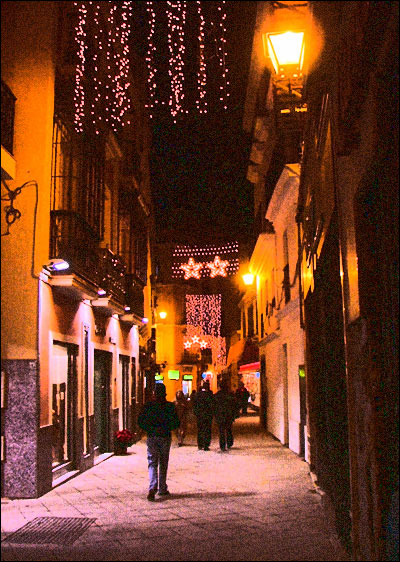
The city was lovely in December. Most of the narrow streets in the town center were draped in lighting, and I’m not talking schmaltzy, blinking, trailer-trash numbers either. These were uniformly white strands, their elegance adding to the city’s already over-the-top beauty. And the streets were simply packed in the evenings — everyone just finishing up work, kids running around, street musicians competing for the attention of passersby. The stores were packed with holiday shoppers, but the wares they had for sale were nothing like what the street vendors were peddling.
The street vendor’s routine was similar to that of most illegal street sellers: Spread a huge blanket on the sidewalk, and arrange the goodies over it in a way that facilitates a hasty, gather-it-up getaway should the police come around. Most of the vendors, who often displayed their goods in packs of six or seven, had things like rainbow-colored knitted caps and scarves, leather belts and bags — things I wasn’t interested in. But one fellow had an absolute gem of a thing: a foot-high stuffed cow standing upright on a fairly stable set of hind legs. When turned on, its upper body simply thrashed in every direction. The action of the upper portion led the legs to waddle here and there, and the effect of 20 of these cows doing this in concert just captivated me.
As I stood at a distance watching, I pictured the toy as a gift for my three-year-old nephew, Zdenek — how much he would enjoy it! The vendor, a short fellow who looked to be about 30, had a shock of straight, combed-over black hair. He wore a lined flannel shirt over jeans, and running shoes. He had a pleasant-looking face, but his eyes were nervous and constantly scanning the crowds. I must have looked suspicious to him standing across the pedestrian way, because his eyes kept returning to mine. Eventually (more to stop him from eyeing me than from a real desire to buy), I went over and asked him how much one of the thrashing cows cost.
“Ten euros,” he said. I had thought double that, and right then I decided to buy two.
“Ok,” I said, “I’ll take two.” The guy gave me a big smile and took two of the stationary, plastic-bagged cows from the back row and handed them to me.
“Batteries included,” he said.
“What service,” I responded, and smiled. I took the 50 euros from my pocket and handed it over. His face sort of changed as I held out the money, and he fished around in his pockets before asking if I had something smaller. I didn’t. He looked around for a second and then suggested that I go into a bar — he pointed at one behind me — and ask for change. I turned around and looked. There was a side street that led off of the main shopping avenue, and maybe 50 feet down was a busy pub. The plastic garden furniture placed out in front was completely occupied and surrounded by napkins and other trash lying on the ground. I nodded and told him I’d be right back.
As I walked, I felt the weight of apprehension settle upon me — I wasn’t sure how to ask for change. I racked my brain for the phrase and found an approximation before walking into the bar. Everyone noticed me coming in. The whole pub quieted down to check out the stranger. At least 30 sets of eyes rested on me. But the most important set — the barman’s — came nowhere close to mine. He studiously avoided eye contact for a full minute before I spoke up, asking him in Spanish to change me. “Puede cambiar me?”
He didn’t lift his head from his task, but responded, “Into what?” The people around me laughed, but I didn’t understand the joke.
“Two 20s and a 10,” I said. He again said something I didn’t catch — more laughter. “I’m sorry,” I responded. “I don’t understand.”
“I don’t give change,” he said. “What?” I said. “I don’t give change.” “Oh. Well, thanks,” I said, “That’s very kind.” I tried to say it ironically, but in a foreign language, one can never tell.
“Nothing to thank,” he responded.
I weaved my way through the crowd and back to the vendor. As he saw me coming, he picked up the two cows he had chosen for me and said, “Okay?” I shook my head and showed him the 50 again. He looked at me and said something I didn’t understand, and as people tend to do when they don’t understand, I nodded my head and agreed with him. He smiled then and placed the cows among the other cows, then reached out for the 50. I blinked in confusion as he did this, and he said, very slowly, that he was going to try to get change and that he would be right back. I said okay, and he smiled and took the money, then weaved through the pedestrians and into the bar.
As I stood there in front of the thrashing cows, distracted by their non-stop action, I wondered that the man would leave his wares just lying there — someone might steal one and run away while he was gone. But then I realized I probably wouldn’t let anyone do that. They had somehow become my temporary responsibility. I even moved behind them to let the pedestrians have a better view, and this seemed to be the right move, because just a moment later, two children, probably brother and sister, ran over and stood in front of the cows. They were really beautiful kids, dressed in formal winter wear. The girl was in a tan, knee-high wool jacket and thick stockings. Her ensemble was topped off by a matching ribbon in her hair. The boy was wearing the same jacket and brown slacks, and I couldn’t help but smile at them as they jabbered away, pointing and giggling at the raucous cows.
Still smiling, I looked up at the parents, who looked like they might buy. They edged closer and asked me how much the cows were, and I told them 10 euros each. They smiled at each other and nodded, then tried to pull their kids away. There were protests, but the parents placated them, and the man winked at me as they walked away to the right — I took his signal to mean that he would return to buy. Buoyed by the kids and thinking of how I could tell the vendor he had a customer, I was smiling and on the verge of a chuckle when I turned my head to the left and saw two policemen coming toward me. They did not look nearly as fun-loving as the children had. My smile fled as they came up to me.
The big one looked me up and down and demanded something of me. I told him I didn’t understand and he took a step toward me, as if making to grab me. The second one said, in English, “Speak English?”
“Yes.”
“Are these yours?”
“No!”
“Why are you standing over them?”
“I was just … just looking,” I stammered. “Whose are they?” I shrugged, looking at the English speaker. Just then, over their shoulders, I saw the vendor emerge from the bar. He stopped short when he saw the police standing in front of me.
I told the policeman I didn’t know whose they were. This brought out a grunt and they commenced to speak between themselves. As they did this, I looked back to the vendor and saw him hold up the money, crumble it, and throw it to the ground. Then he shrugged and ran like hell. The Spanish-speaking policeman must have seen my attention shift over their shoulders, because a moment later, he yelled to his partner and pointed at the fleeing vendor. They both looked at me and yelled. I didn’t understand the Spanish speaker, but the English speaker said, “Is that the owner?”
“I … I don’t know.” The bigger one started running through the gathering crowd, but it was hard for him to get through. The English speaker moved closer to me. “I want your identification.”
“I don’t have any. It’s … in my hotel.” “Then tell me your name and your hotel name.” No idea where this came from, but out it popped:
“My name is Michael Moore. I’m staying at the Holiday Inn.”
The policeman wrote my “name” down and told me to go back to my hotel — they would come visit me shortly.
“Yes sir.” Glaring at me meaningfully, he tucked his notepad into his jacket and then gathered up the cows with the sheet. He bound the resulting sack, which was thrashing everywhere with the cows inside, with a pipe tie that he fished out of his pocket, then fought his way through the crowd in the direction his partner had gone.
As I faced the inquisitive crowd that had gathered, I suddenly felt sick to my stomach from the stress. It isn’t often that one gets to experience another man’s lot so completely. I puffed out my cheeks and made my way through the people and over to where the vendor had thrown the money. I had to search for awhile, but eventually I found a wadded-up bill and unfolded it. It was the 50. The bastard wouldn’t change him, either.
Jim Curtiss
Dear Reader,
In The Fray is a nonprofit staffed by volunteers. If you liked this piece, could you
please donate $10? If you want to help, you can also:

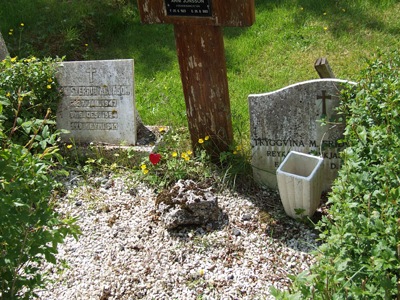

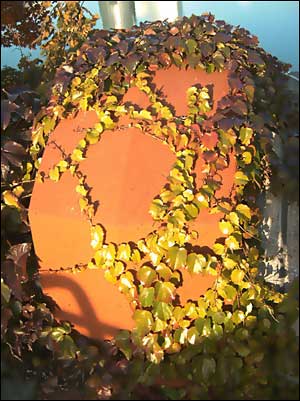
 A poet whose language of birth is German, yet whose preferred language of expression is English.
A poet whose language of birth is German, yet whose preferred language of expression is English. 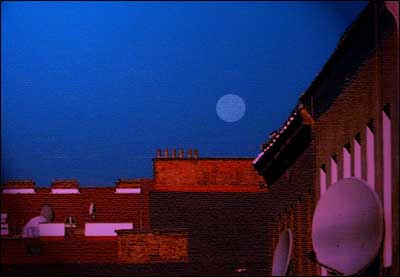



 High school Spanish and Michael Moore play a part in complicated financial dealings on the streets of Seville.
High school Spanish and Michael Moore play a part in complicated financial dealings on the streets of Seville. 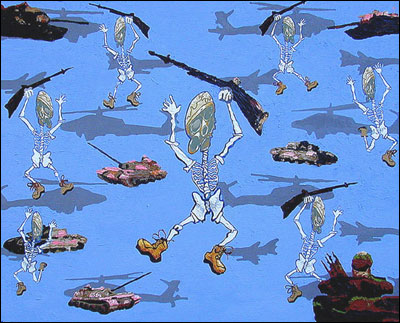

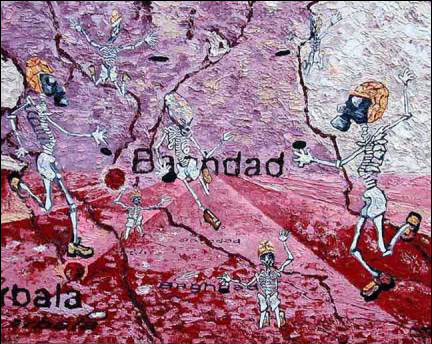
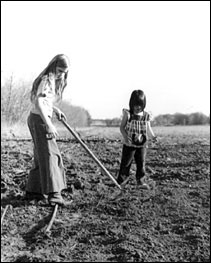
 Looking back on lessons learned.
Looking back on lessons learned. 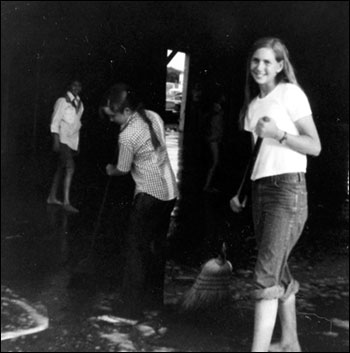

 Three poems.
Three poems. 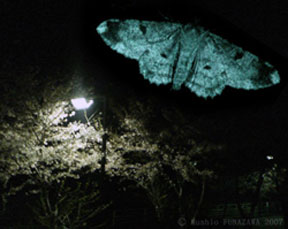

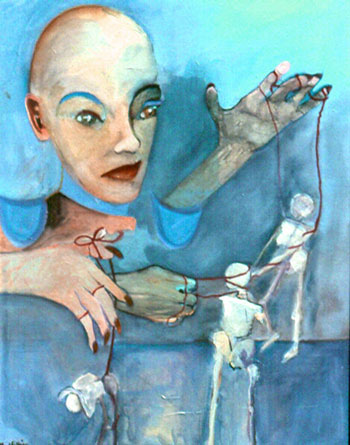
 Food’s so mundane when compared to the adoration of emaciation ...
Food’s so mundane when compared to the adoration of emaciation ... 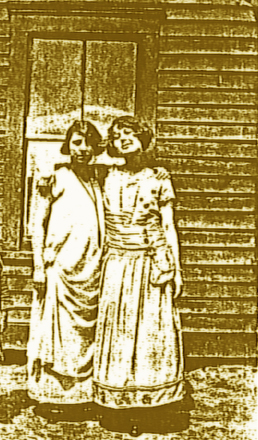
 A photo of two great aunts serves as inspiration.
A photo of two great aunts serves as inspiration.